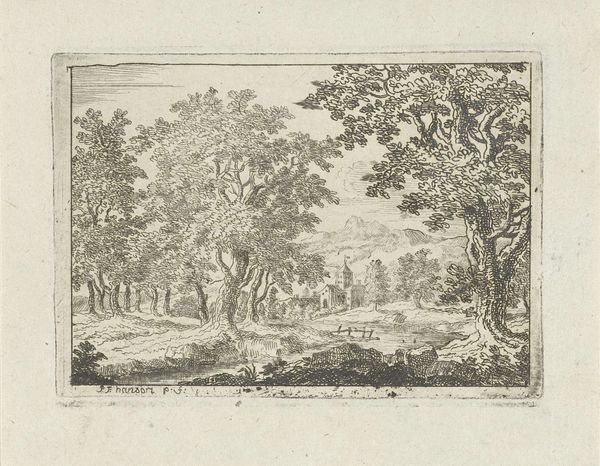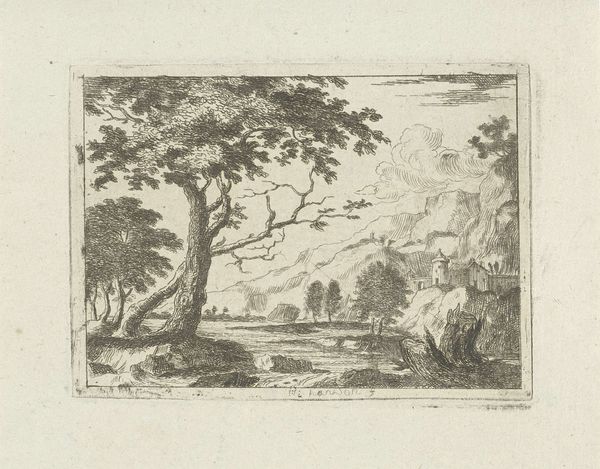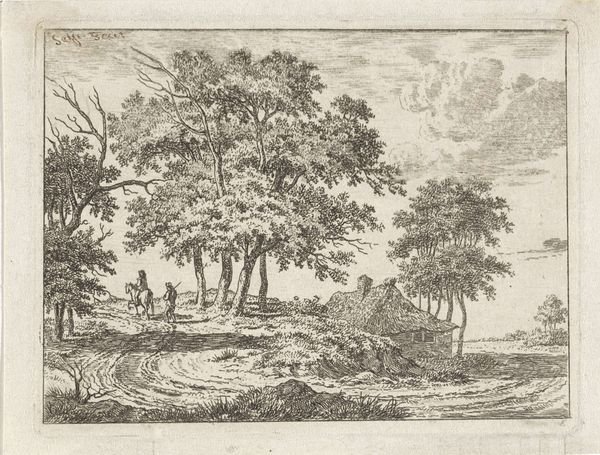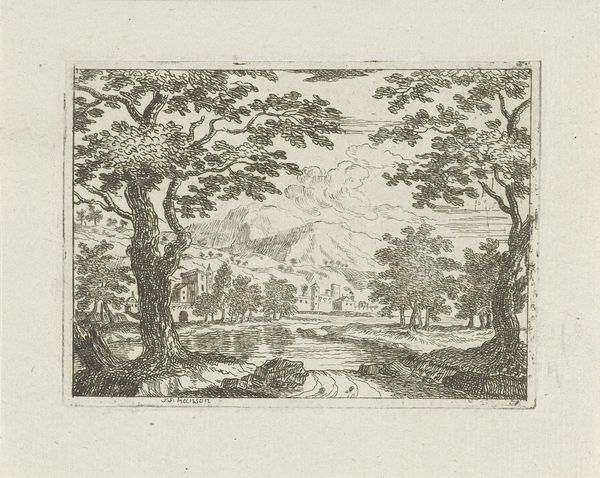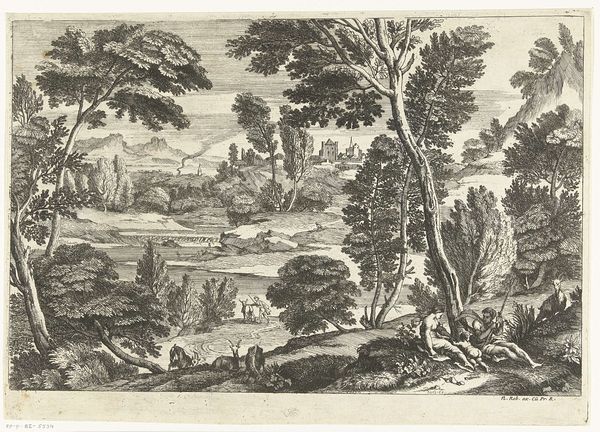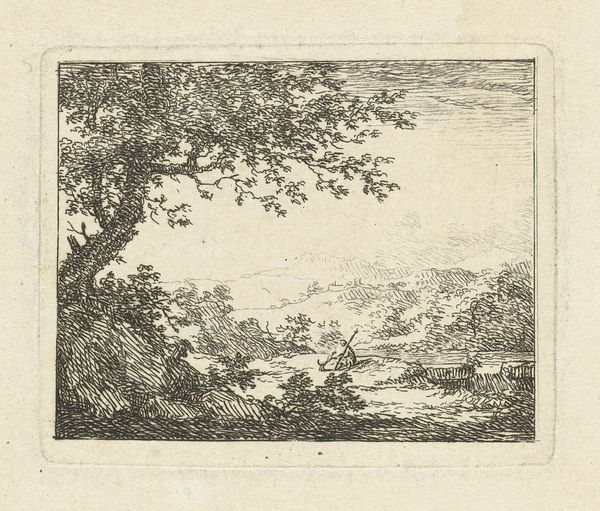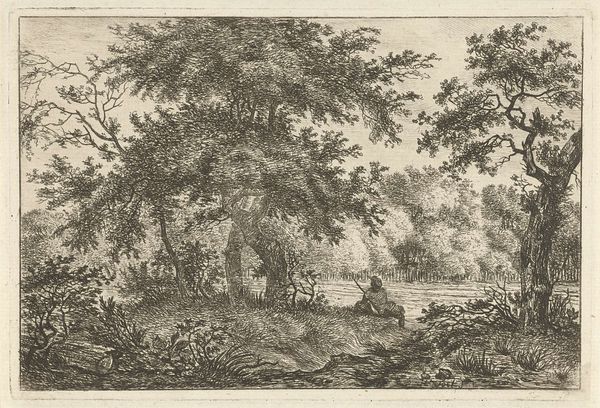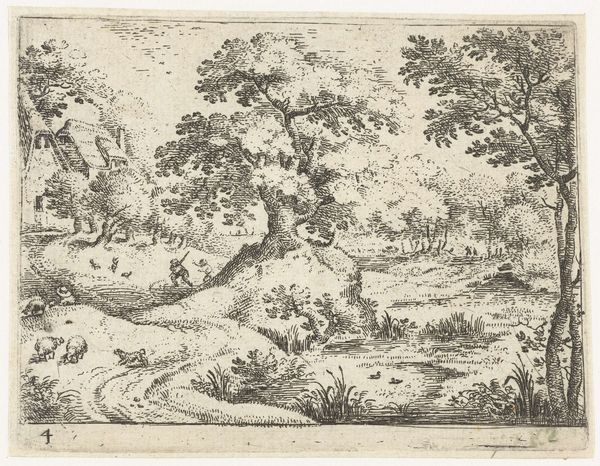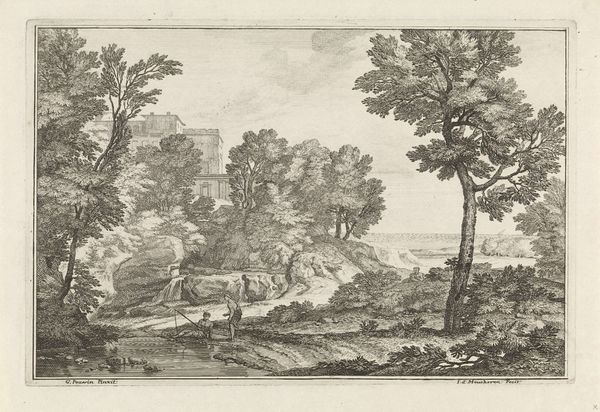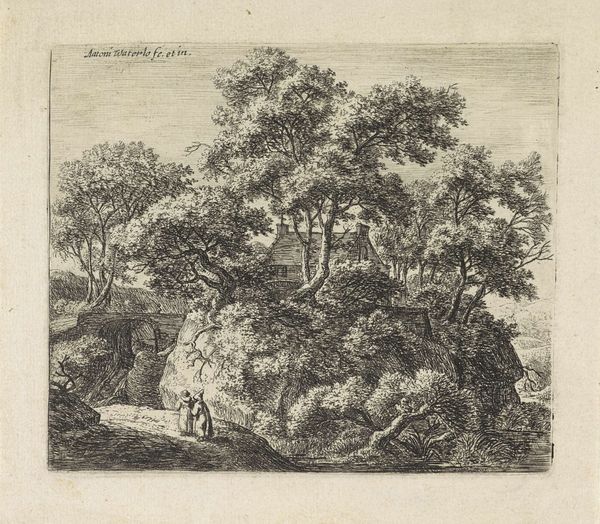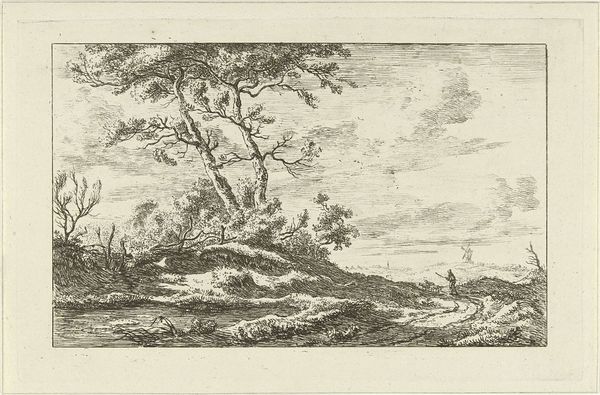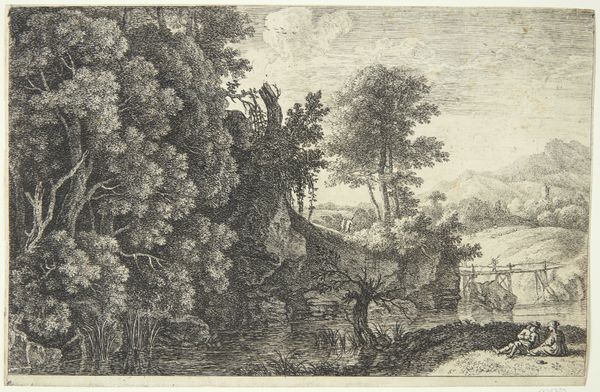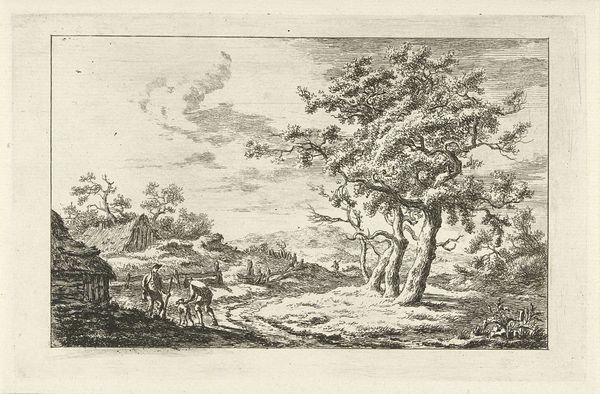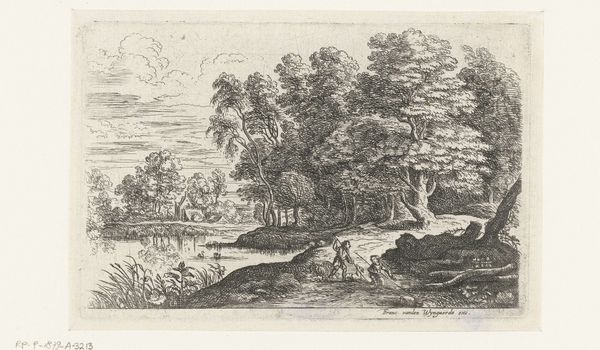
Dimensions: height 73 mm, width 102 mm
Copyright: Rijks Museum: Open Domain
Jean Joseph Hanson created this landscape with a stone building using etching, a process involving acid to cut lines into a metal plate, sometime in the late 18th century. Hanson lived through an era marked by Enlightenment ideals and burgeoning industrialization, yet this etching seems to resist the rapid societal changes, instead offering a retreat into an idealized, untouched nature. You can almost feel the cool shade under the dense canopy of trees. The inclusion of a stone building, perhaps a church, situates the landscape within a domain of established order, both natural and divine. Interestingly, what’s absent speaks volumes. There are no bustling figures, no signs of labor or modern progress, no grand narratives of exploration or conquest that were so often romanticized in the art of the time. Instead, Hanson gives us a quiet, introspective space, inviting viewers to contemplate a world that remains untamed. It offers a space to consider our relationship to the land, away from the pressures of society.
Comments
No comments
Be the first to comment and join the conversation on the ultimate creative platform.
